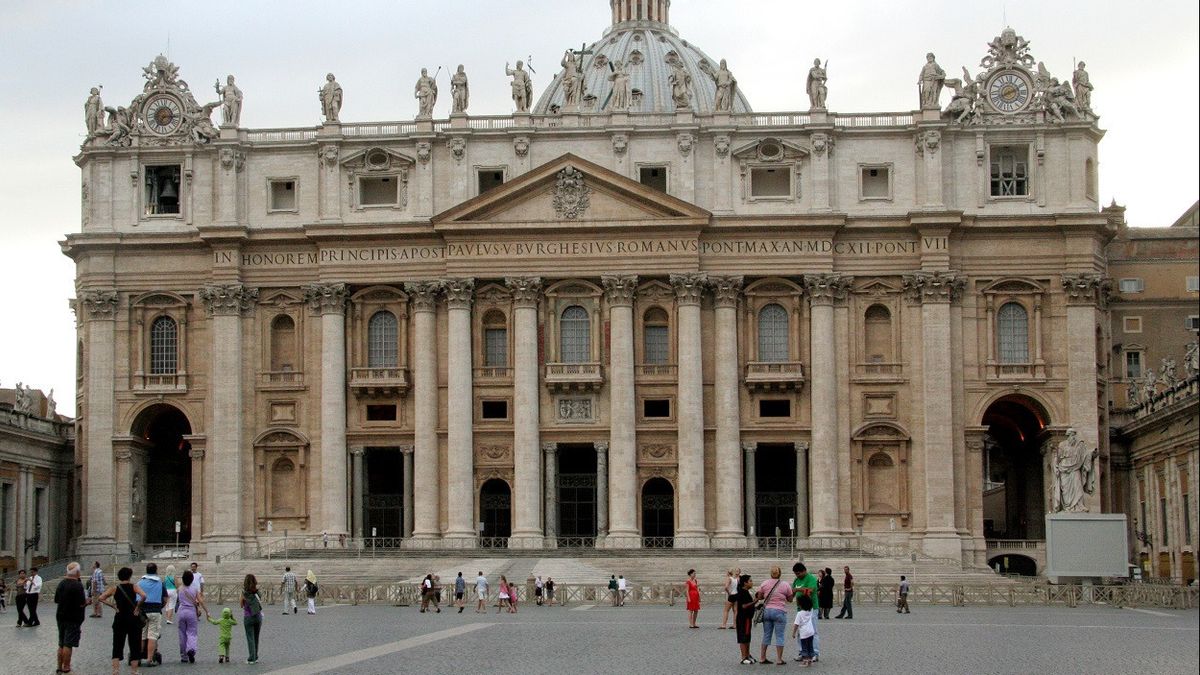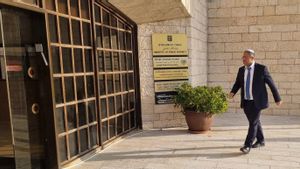JAKARTA - The Vatican said Monday it issued an important decree approved by Pope Francis, that Roman Catholic priests can give blessings to same-sex couples, provided they are not part of the Church's regular rituals or liturgy.
A document from the Vatican's doctrinal office, which effectively annulled a declaration the same body issued in 2021, said such a blessing would not legitimize an unusual situation but would be a sign that God welcomes everyone.
This should not be confused with the sacrament of heterosexual marriage, the document added, reported by Reuters, December 19.
It said priests must make decisions on a case-by-case basis and "should not prevent or prohibit the closeness of the Church to the faithful in any situation, where they may seek God's help through blessings".
Previously, the Pope hinted that formal changes were being made in October, in response to questions asked by five conservative cardinals at the start of the synod of bishops at the Vatican.

Although responses given in October were more mixed, an eight-page document published on Monday, subtitled "On the Pastoral Meaning of Blessings" outlined specific situations. The 11-point document is entitled "Blessings for Couples in Unusual Situations and Same-Sex Couples."
The Church teaches that same-sex attraction is not a sin, but homosexual acts are. Since his election in 2013, Pope Francis has sought to make the 1.35 billion-member church more welcoming to LGBT people, without changing moral doctrine.
Father James Martin, a prominent American Jesuit priest serving the LGBT community, called the document "a major step forward in the church's ministry" to them.
In a post on social media -my friend in a same-sex union".
Meanwhile, Francis DeBernardo, executive director of New Ways Ministry, a group that advocates for LGBT rights in the Church, said the importance of the document "cannot be overstated." He praised the document's wording, which states that people seeking blessings should not be subjected to “deep moral analysis.”
Separately, Monday's decision will likely be opposed by conservative groups, who already criticized the Pope when he made his first comments on the issue in October.

Ulrich L. Lehner, a theology professor at the University of Notre Dame in the United States, said the new guidance from the doctrinal office "invites misunderstanding and will sow confusion".
Voicing concerns that some bishops would use it as an excuse to do what is explicitly prohibited, the professor added, "this, and I hate to say it, is an invitation to division."
The document, whose Latin title is "Fiducia Supplicans" ("Supplicating Trust"), states the form of the blessing "shall not be prescribed ritually by ecclesiastical authorities to avoid confusion with the blessing corresponding to the Sacrament of Matrimony".
It is said that this can be applied to those who “do not claim legitimacy for their own status, but plead that all that is true, good, and humanly valid in their lives and their relationships be enriched, healed, and enhanced by their presence. from the Holy Spirit."
"Ultimately, blessings provide humans with the means to increase their trust in God," he said, adding that it "should be nurtured, not hindered."
SEE ALSO:
The document also says the blessing should not be associated or timed with a civil wedding ceremony and be performed without the use of "clothing, gestures or words appropriate for a wedding".
The venue for such blessings, he said, may be "in other contexts, such as a visit to a holy place, a meeting with a priest, the recitation of prayers in a group, or during a pilgrimage."
It is known that the decree was signed by Cardinal Victor Manuel Fernandez, head of the Vatican's Dicastery for the Doctrine of the Faith and approved by the Pope in a private audience with Fernandez and other doctrinal office officials on Monday.
The English, Chinese, Japanese, Arabic, and French versions are automatically generated by the AI. So there may still be inaccuracies in translating, please always see Indonesian as our main language. (system supported by DigitalSiber.id)


















